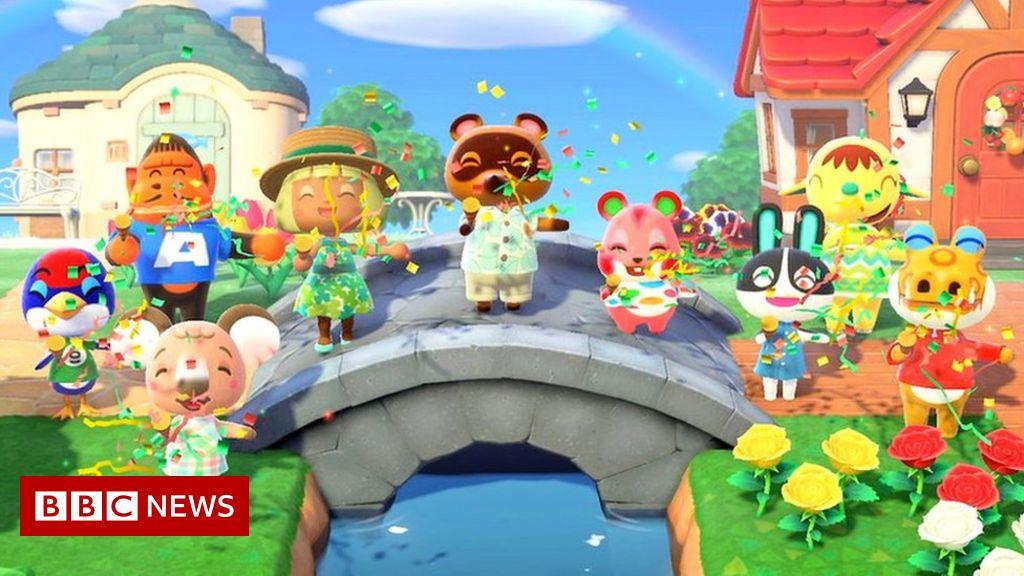By Zoe KleinmanTechnology reporter
- Published
- comments
- Comments
People who play video games for long periods of time tend to report feeling happier than those who do not, a study has indicated.
The Oxford Internet Institute research focused on two games: Nintendo's Animal Crossing and EA's Plants vs Zombies.
In an unusual step, the developers of the games shared anonymised data about how long each participant had played.
These logs were then linked to a survey in which the players answered questions about their well-being.
A total of 3,274 gamers took part. All were over 18.
In previous research, data gathered about the duration of subjects' gaming sessions was based on self-reported "guesstimates", which can be inaccurate.
Surprising findings
Nintendo solely provided data on playing times in Animal Crossing: New Horizons.

But EA also shared some data about in-game performance within Plants vs Zombies: Battle for Neighborville. This included achievements, and the emoticons the participants had used to express themselves.
The gamers were also asked how they felt about their experiences.
Prof Andrew Przybylski, who led the study, said he was surprised by the results.
"If you play Animal Crossing for four hours a day, every single day, you're likely to say you feel significantly happier than someone who doesn't," he said.
"That doesn't mean Animal Crossing by itself makes you happy."
But, he added, 40 years of previous research had suggested the longer people played, the more unhappy they said they were.
The academic suggested that one reason for the discrepancy might be that both of these games had social features, in which players interacted with characters controlled by other humans.
"I don't think people plough a bunch of time into games with a social aspect unless they're happy about it," he said.
"It's like a digital water-cooler," he added, suggesting the titles both provide new ways to mingle with others online.
However, he said that those who had felt compelled to play - for example because they were seeking to avoid stress elsewhere in their lives - had reported being less content.
The world's playgrounds
The professor has called on other games-makers to share similar data.
"We need to study more games, and more players, over more time," he said.
"It would be like letting psychologists study all the playgrounds in the world.
"We might build a theory of bullying or learn how people build new friendships. My hope is that this fosters curiosity and collaboration and open data."




